Find Help
More Items From Ergsy search
-
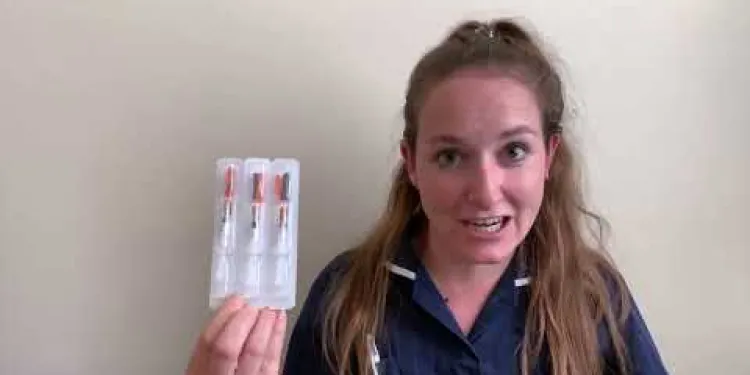
Bariatric Surgery - What to expect when you come to hospital for your operation.
Relevance: 100%
-

Your Operation at East Surrey Hospital
Relevance: 63%
-
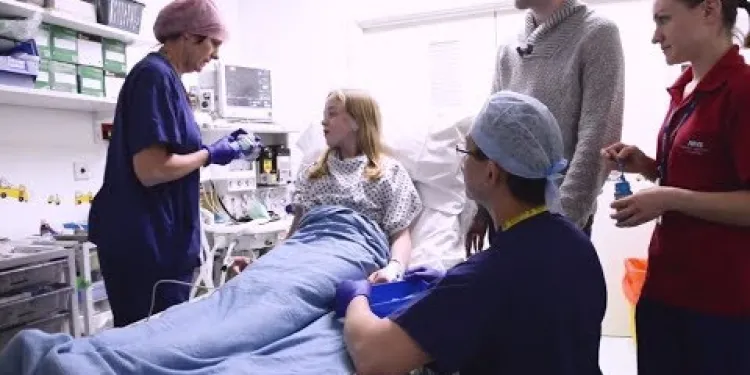
Having an operation in Oxford Children's Hospital with YiPpEe
Relevance: 60%
-

Are waiting times for operations the same across all hospitals?
Relevance: 57%
-

Do private hospitals have shorter waiting times for operations?
Relevance: 55%
-
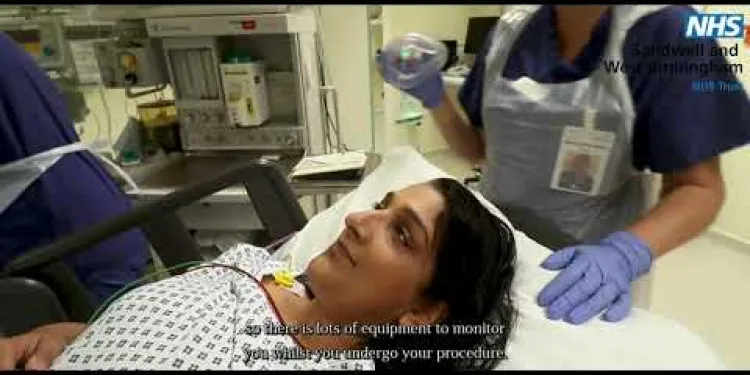
What to expect when visiting our hospitals for surgery | Theatres
Relevance: 52%
-

Undergoing day case surgery at University Hospitals Bristol
Relevance: 52%
-

How can I find current waiting times for operations in my local hospital?
Relevance: 52%
-
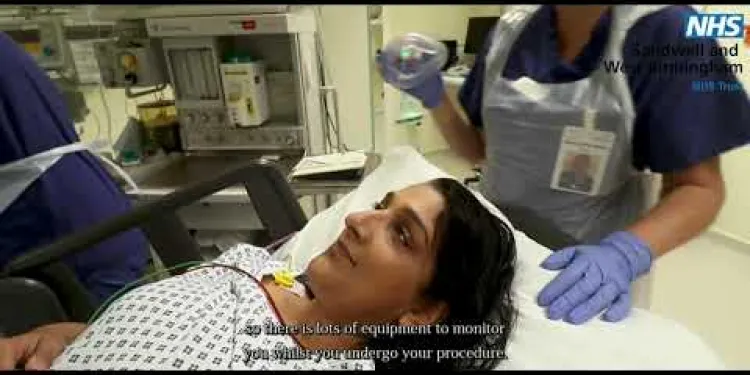
What to expect when visiting our hospitals for surgery | Theatres
Relevance: 50%
-
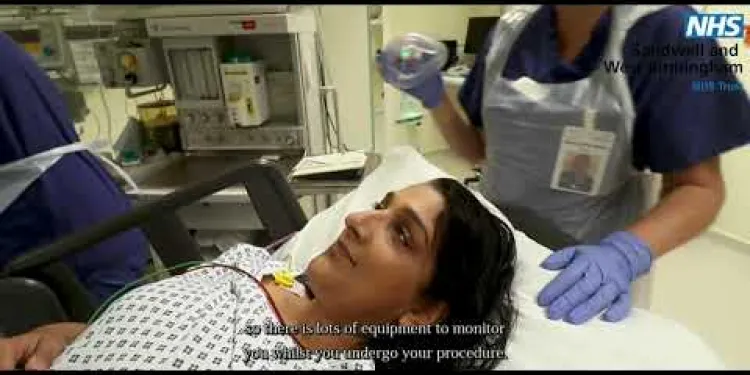
What to expect when visiting our hospitals for surgery | Theatres
Relevance: 49%
-

What to expect on the day of your operation
Relevance: 49%
-

Thyroid eye disease. Squint surgery - The operation
Relevance: 47%
-

Does my doctor have access to operation waiting times?
Relevance: 45%
-

Having an operation or procedure at the Royal Free London
Relevance: 43%
-

Having an operation
Relevance: 42%
-

What factors affect the waiting time for my surgery?
Relevance: 42%
-

Are there specific resources for urgent operation waiting times?
Relevance: 41%
-
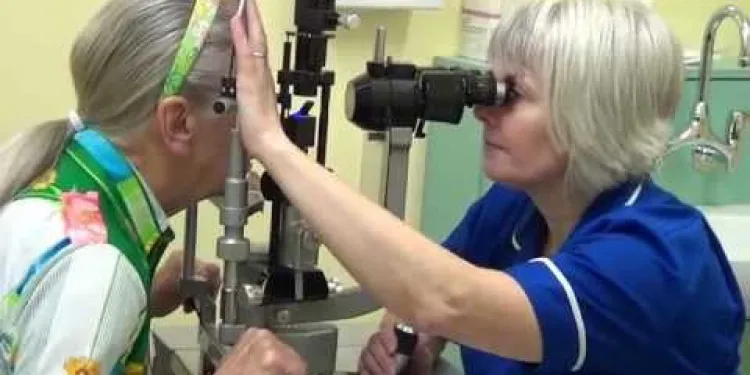
Your Cataract Operation
Relevance: 41%
-

Weight Loss Surgery
Relevance: 40%
-
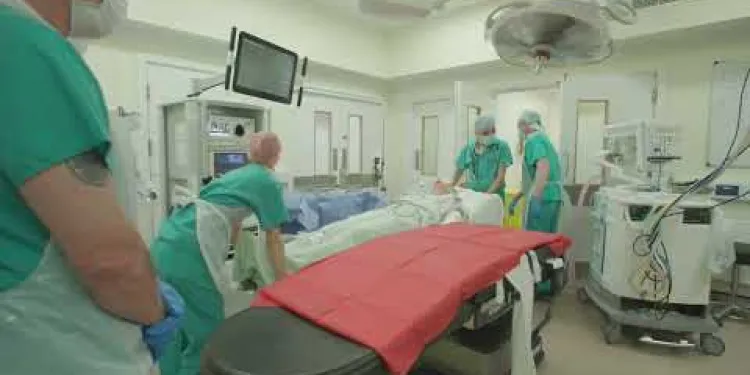
Prostate Surgery
Relevance: 39%
-

Having an operation at the Children’s Centre
Relevance: 39%
-

How can I find information on waiting times for an operation in my area?
Relevance: 38%
-

Having an anaesthetic for your operation - for over 8s
Relevance: 38%
-

How long does a hip replacement surgery take?
Relevance: 38%
-

Are there apps available to check operation waiting times?
Relevance: 37%
-

How often are operation waiting times updated?
Relevance: 36%
-
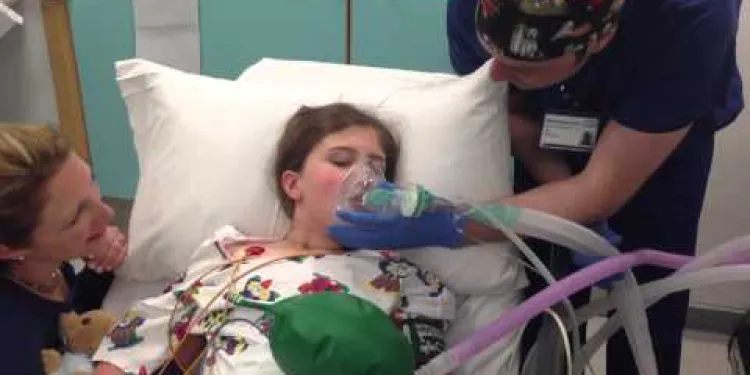
My General Anaesthetic: What's Going To Happen? Sarah's Story at Worcestershire Royal Hospital.
Relevance: 36%
-

Can I get information on average waiting times for operations?
Relevance: 36%
-

Can I appeal a long waiting time for my operation?
Relevance: 36%
-

Inpatient Surgery at North Bristol NHS Trust
Relevance: 34%
-

Pre operative Information for Planned Caesarean Birth
Relevance: 34%
-

How much does hip replacement surgery cost in the UK?
Relevance: 34%
-

Experiencing delirium after surgery
Relevance: 34%
-

Who should I contact for questions about surgery waiting times?
Relevance: 33%
-
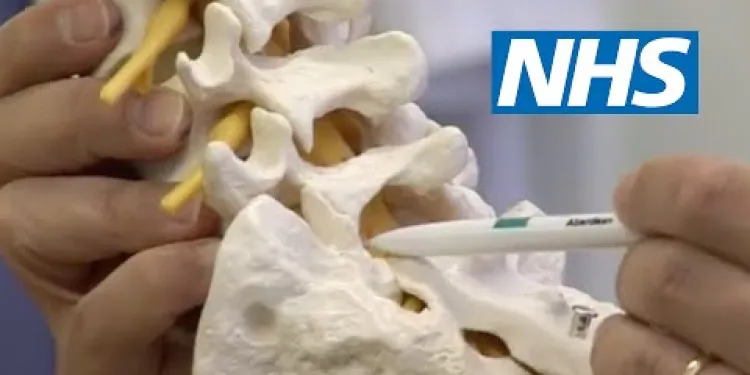
Lumbar surgery | NHS
Relevance: 33%
-

How does surgery treat prostate cancer?
Relevance: 32%
-

How do I prepare for hip replacement surgery?
Relevance: 32%
-

Delirium: A Patient Story at Leicester's Hospitals
Relevance: 31%
-

How do AI-assisted robotic systems enhance lung cancer surgeries?
Relevance: 31%
-

Is there a national database for checking waiting times for surgeries?
Relevance: 31%
Bariatric Surgery: What to Expect When You Come to Hospital for Your Operation
Pre-admission Preparation
Before your surgery, you will have pre-admission appointments to evaluate your fitness for the procedure. This includes meeting with a nutritionist, psychologist, and the surgical team. You'll also undergo blood tests, an ECG, and possibly other diagnostics. These ensure you're in optimal health for the surgery. You'll receive instructions on preoperative fasting and any medications you must avoid.Admission on the Day
On the day of your surgery, arrive at the hospital's reception as instructed, typically a few hours before the procedure. Check-in involves some paperwork, verification of your details, and briefing on the day's schedule. You'll be taken to a preoperative area where you can change into a hospital gown and store personal belongings securely.Meeting the Surgical Team
You'll meet your surgeon, anaesthetist, and nursing staff before the operation. They will review your medical history, explain the surgical procedure again, and answer any last-minute questions. This is an excellent time to voice any concerns and ensure all your queries are addressed.Undergoing Surgery
You'll be taken to the operating theatre, where the anaesthetist will administer general anaesthesia. The surgery may take between one to three hours, depending on the specific type of bariatric surgery being performed, such as gastric bypass, sleeve gastrectomy, or adjustable gastric banding. During the procedure, the surgical team will work to ensure your safety and successful operation.Postoperative Care
After surgery, you'll be moved to a recovery room, where medical staff will monitor you closely as you wake up from anaesthesia. Pain management, vital sign monitoring, and hydration are primary focuses during this time. You'll transition to a regular hospital room once stable, typically within a few hours.Hospital Stay and Discharge
Expect a hospital stay of 2-3 days for most bariatric procedures. During this period, nurses and doctors will monitor your recovery, manage pain, and begin reintroducing liquids to your diet. You'll receive guidance about wound care, activity restrictions, and dietary adjustments. Before discharge, you’ll have a follow-up appointment schedule and emergency contact information.Beyond the Hospital
Successful recovery and long-term weight management require ongoing care. Attend all postoperative appointments, follow dietary guidelines strictly, and engage in suggested physical activities. Support groups and counselling can also be invaluable during this adjustment period. Understanding what to expect at each step can help reduce anxiety and improve your overall experience with bariatric surgery in the UK.Bariatric Surgery: What to Expect When You Come to Hospital for Your Operation
Getting Ready Before the Hospital
Before your operation, you will have appointments to check if you're fit for the surgery. You will see a food expert, a talking doctor, and the surgery team. You might have blood tests and other checks to make sure you are healthy. You will be told when to stop eating before the surgery and which medicines to avoid.Coming to Hospital on Surgery Day
On the day of your surgery, come to the hospital reception early. You will fill out some forms and check your details. Then, you will go to a special area to change into a hospital gown and keep your things safe.Meeting Your Surgery Team
You will meet your surgeon, sleep doctor, and nurses. They will talk to you about your medical history and explain the operation once more. Ask any questions you have. This is a good time to tell them if you have any concerns.Having the Surgery
You will go to the operating room where the sleep doctor will give you medicine to sleep. The surgery can take between one to three hours. There are different types like gastric bypass or sleeve gastrectomy. The team will make sure you are safe during the surgery.After the Surgery
After the surgery, you will go to a room where you wake up from the sleep medicine. Nurses and doctors will check on you to manage pain and keep you hydrated. When you are feeling okay, you will go to a regular hospital room.Staying in the Hospital and Going Home
You will stay in the hospital for 2-3 days. Nurses and doctors will help you as you get better. You will start drinking liquids and learn how to take care of yourself. You will also get a list of follow-up appointment dates and emergency contact numbers.After Leaving Hospital
To get better and manage your weight, keep going to your doctor appointments. Follow the eating plans and stay active. Joining support groups or speaking with a counselor can also help you adjust after the surgery. Knowing what happens at each step can make you feel less worried and help you have a better surgery experience.Frequently Asked Questions
What is bariatric surgery?
Bariatric surgery includes various procedures that help with weight loss by making changes to your digestive system.
How should I prepare for bariatric surgery?
Preparation typically includes a series of pre-operation appointments, potential dietary changes, and possibly losing some weight before the surgery.
What types of bariatric surgery are available?
Common types include gastric bypass, sleeve gastrectomy, adjustable gastric band, and biliopancreatic diversion with duodenal switch.
How long will I stay in the hospital?
The typical hospital stay ranges from 1 to 3 days, depending on the specific procedure and your recovery.
What should I bring with me to the hospital?
Bring essentials such as comfortable clothing, personal hygiene items, medications, and any paperwork provided by your healthcare team.
Will I have pain after the surgery?
Some pain and discomfort are common after surgery but can be managed with prescribed medications and proper care.
How soon can I go back to normal activities?
Recovery time varies; many patients return to normal activities within 2-4 weeks. Follow your surgeon's advice on post-operative care.
What are the possible risks and complications?
Risks include infection, blood clots, vitamin deficiencies, and complications related to the surgery itself. Your healthcare team will monitor you closely.
Will I need to follow a special diet after surgery?
Yes, you will need to follow a prescribed diet that begins with liquids and gradually transitions to solid foods,
When can I start eating normally again?
It can take several weeks before you can eat solid foods. It is essential to follow the dietary guidelines provided by your dietitian.
How much weight can I expect to lose?
Weight loss varies, but patients generally lose between 50-70% of their excess body weight within the first two years.
Will I need to take vitamins and supplements?
Yes, you will need to take vitamins and mineral supplements for the rest of your life to prevent deficiencies.
Are there any follow-up appointments required?
Yes, regular follow-up appointments with your surgeon, dietitian, and possibly a psychologist are necessary to monitor your progress and health.
Will I have scars after the surgery?
You will have small scars from the laparoscopic incisions. Over time, these should fade, but some scarring will remain.
Can I become pregnant after bariatric surgery?
Yes, but it is recommended to wait at least 12 to 18 months after surgery to ensure your body is stable and better nourished.
What is weight loss surgery?
Weight loss surgery is an operation. It helps people lose weight.
Doctors do this surgery when other ways to lose weight have not worked. It can help when someone is very overweight and it is bad for their health.
There are different kinds of weight loss surgery. They all help the stomach get smaller. This helps people eat less and lose weight.
If you or someone you know is thinking about weight loss surgery, it is important to talk to a doctor. The doctor can explain more and help you decide what to do.
Tools to help understand more:
- Ask a doctor or nurse
- Watch videos for kids about healthy eating
- Use pictures to learn
Bariatric surgery is an operation. It helps people lose weight. The doctors change how your body uses food.
How can I get ready for weight loss surgery?
Getting ready for weight loss surgery is important. Here are some steps to help you:
- See Your Doctor: Talk to your doctor about the surgery. They can tell you what to expect and how to get ready.
- Healthy Eating: Start eating healthy foods. This can help you lose some weight before the surgery and make it safer.
- Exercise: Try to move more. Exercise can help your body be strong for the surgery.
- Ask Questions: It's okay to ask lots of questions. Your doctor can explain things so you can understand.
- Support: Talk to friends or family who can help you feel good and be ready for the surgery.
Tools like picture charts or simple videos can help you understand and get ready. You can also ask for help if you need it.
Getting ready for surgery usually means going to some doctor appointments. You might need to eat different foods or lose some weight before the surgery.
What types of weight loss surgery can you have?
Weight loss surgery can help people lose weight. Here are some types:
- Gastric Band: A doctor puts a band around the top of the stomach. This makes the stomach smaller.
- Gastric Bypass: A doctor changes the stomach and small intestine. This makes you feel full sooner and eat less.
- Sleeve Gastrectomy: A doctor removes part of the stomach. This makes the stomach smaller.
Ask a doctor or nurse to explain more if you are not sure.
Use pictures or videos to help understand.
There are different types of weight loss surgery. These include:
- Gastric bypass: This is a way to make your stomach smaller so you eat less.
- Sleeve gastrectomy: This surgery removes part of your stomach, so it looks like a sleeve.
- Adjustable gastric band: A band is put around your stomach to make it smaller.
- Biliopancreatic diversion with duodenal switch: This is a big change to your stomach and how food moves in your body.
If you need help reading, try using tools like audiobooks or text-to-speech apps to listen to the words.
How long will I stay in the hospital?
You might stay in the hospital for a short time. It could be one night or a few days. Ask your doctor or nurse to know for sure.
Tip: Bring something to do, like a book or a toy, to help pass the time.
You might stay in the hospital for 1 to 3 days. This depends on what kind of surgery you have and how well you get better.
What do I need to take to the hospital?
Here is a list of things to take:
- Your ID or passport
- Your health insurance card
- Your medicines
- Clothes to wear
- Toothbrush and toothpaste
It is also good to:
- Ask a friend or family to help you pack
- Use a checklist to remember everything
Pack the things you need like comfy clothes, toothbrush, soap, medicines, and any important papers from your doctor.
Will it hurt after the surgery?
After surgery, you might feel some pain or discomfort. This is normal. You can feel better with medicine from your doctor and by taking good care of yourself.
When can I do my usual activities again?
Getting better takes different times for different people. Most people can do normal things again in 2 to 4 weeks. Listen to your doctor's advice about what to do after your surgery.
What could go wrong?
There are some things that might go wrong. You could get sick from an infection. You might get blood clots, which are like lumps in your blood. Sometimes, you might not have enough vitamins in your body. The surgery itself could have problems too. But don't worry, your doctors and nurses will keep a close eye on you to make sure you are okay.
Do I have to eat special foods after my operation?
After your operation, your doctor might want you to eat certain foods to help you get better.
Ask your doctor or nurse if there are foods you should eat or avoid.
They can also give you a list of good foods to eat.
Here are some things that might help you:
- Listen to your doctor’s advice.
- Make a simple meal plan.
- Use a chart to check what foods you need.
Yes, you have to start with drinking liquids. After that, you slowly eat soft foods. Then, you can eat regular solid foods.
When can I eat normally again?
After some surgeries or treatments, you may not be able to eat solid foods right away. You might have to wait a few weeks. It is very important to listen to your dietitian. They will tell you what foods you can and can't eat.
How much weight can I expect to lose?
It's hard to say how much weight you will lose. Everyone is different. Your weight loss depends on things like your diet, exercise, and body type. Talk to a doctor or a dietitian to get advice.
Here are some helpful tools:
- Use a food diary to track what you eat.
- Try simple exercises like walking or playing outside.
- Ask grown-ups for help if you are unsure.
When people try to lose weight, it can be different for everyone. Most people can lose between half and a little more than half of their extra weight in the first two years.
Do I need to take vitamins and other health pills?
Yes, you need to take vitamins and minerals for the rest of your life. This helps you stay healthy.
You can use a pillbox to remember your vitamins. An alarm on your phone can help too.
Do I need to come back for more visits?
Yes, you need to see your doctor, dietitian, and sometimes a therapist often. They help check how you are doing and make sure you are healthy.
Will I have marks after the surgery?
After the surgery, you might have small marks on your skin. These marks are called scars. Most of the time, they are not big and will get better with time. It is important to take care of your skin after the surgery to help it heal well. You can use creams or special bandages that the doctor tells you about.
If you are worried about the scars, you can ask your doctor to explain what they might look like. You can also ask how to care for them. You might even want to draw or write down your questions before you see the doctor.
You will have small marks from where the doctor made tiny cuts. These marks might fade a bit as time goes on. But some marks will stay there.
Can I have a baby after weight loss surgery?
Yes, you can do it. But doctors say it's best to wait for 12 to 18 months after the surgery. This gives your body time to heal and get strong again.
Useful Links
This website offers general information and is not a substitute for professional advice.
Always seek guidance from qualified professionals.
If you have any medical concerns or need urgent help, contact a healthcare professional or emergency services immediately.
- Ergsy carfully checks the information in the videos we provide here.
- Videos shown by Youtube after a video has completed, have NOT been reviewed by ERGSY.
- To view, click the arrow in centre of video.
- Most of the videos you find here will have subtitles and/or closed captions available.
- You may need to turn these on, and choose your preferred language.
- Go to the video you'd like to watch.
- If closed captions (CC) are available, settings will be visible on the bottom right of the video player.
- To turn on Captions, click settings .
- To turn off Captions, click settings again.
More Items From Ergsy search
-

Bariatric Surgery - What to expect when you come to hospital for your operation.
Relevance: 100%
-

Your Operation at East Surrey Hospital
Relevance: 63%
-

Having an operation in Oxford Children's Hospital with YiPpEe
Relevance: 60%
-

Are waiting times for operations the same across all hospitals?
Relevance: 57%
-

Do private hospitals have shorter waiting times for operations?
Relevance: 55%
-

What to expect when visiting our hospitals for surgery | Theatres
Relevance: 52%
-

Undergoing day case surgery at University Hospitals Bristol
Relevance: 52%
-

How can I find current waiting times for operations in my local hospital?
Relevance: 52%
-

What to expect when visiting our hospitals for surgery | Theatres
Relevance: 50%
-

What to expect when visiting our hospitals for surgery | Theatres
Relevance: 49%
-

What to expect on the day of your operation
Relevance: 49%
-

Thyroid eye disease. Squint surgery - The operation
Relevance: 47%
-

Does my doctor have access to operation waiting times?
Relevance: 45%
-

Having an operation or procedure at the Royal Free London
Relevance: 43%
-

Having an operation
Relevance: 42%
-

What factors affect the waiting time for my surgery?
Relevance: 42%
-

Are there specific resources for urgent operation waiting times?
Relevance: 41%
-

Your Cataract Operation
Relevance: 41%
-

Weight Loss Surgery
Relevance: 40%
-

Prostate Surgery
Relevance: 39%
-

Having an operation at the Children’s Centre
Relevance: 39%
-

How can I find information on waiting times for an operation in my area?
Relevance: 38%
-

Having an anaesthetic for your operation - for over 8s
Relevance: 38%
-

How long does a hip replacement surgery take?
Relevance: 38%
-

Are there apps available to check operation waiting times?
Relevance: 37%
-

How often are operation waiting times updated?
Relevance: 36%
-

My General Anaesthetic: What's Going To Happen? Sarah's Story at Worcestershire Royal Hospital.
Relevance: 36%
-

Can I get information on average waiting times for operations?
Relevance: 36%
-

Can I appeal a long waiting time for my operation?
Relevance: 36%
-

Inpatient Surgery at North Bristol NHS Trust
Relevance: 34%
-

Pre operative Information for Planned Caesarean Birth
Relevance: 34%
-

How much does hip replacement surgery cost in the UK?
Relevance: 34%
-

Experiencing delirium after surgery
Relevance: 34%
-

Who should I contact for questions about surgery waiting times?
Relevance: 33%
-

Lumbar surgery | NHS
Relevance: 33%
-

How does surgery treat prostate cancer?
Relevance: 32%
-

How do I prepare for hip replacement surgery?
Relevance: 32%
-

Delirium: A Patient Story at Leicester's Hospitals
Relevance: 31%
-

How do AI-assisted robotic systems enhance lung cancer surgeries?
Relevance: 31%
-

Is there a national database for checking waiting times for surgeries?
Relevance: 31%


